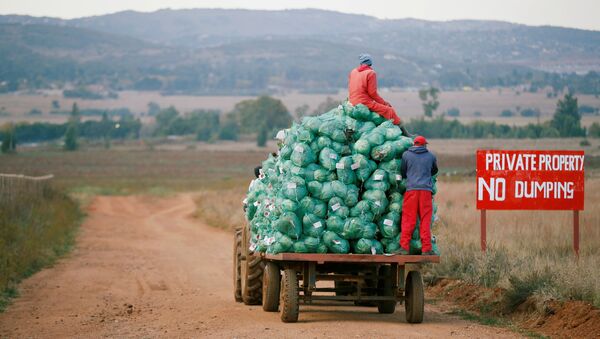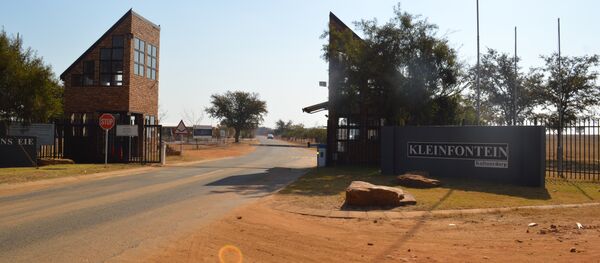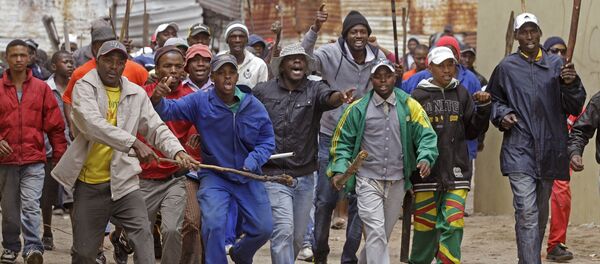Sputnik discussed the constitutional reform allowing for the expropriation of land without compensation in South Africa with Zola Ndwandwe, a South African activist.
Sputnik: What is your feeling about the constitutional reform to allow for the expropriation of land without compensation in South Africa? How necessary is this move?
Zola Ndwandwe: My thoughts are that in order to practically bring about the formation of a non-racial and inclusive society, embedded in the demographics as well as statistical outcomes in terms of socio-economic growth, radical policy, as well as constitutional transformations are essential.
Ones that enable a change involve redistribution to bring about holistic socio-economic equality where everyone is on the same page, rejecting the systemic socio-economics and unjust laws of the apartheid legacy.
Zola Ndwandwe: Parliament is very likely to finalize in the very hazed and proactive approach, involving further debate as well as commissions of inquiries where explicit and clear directive adjustments are made to Section 25 of the Republic of South Africa's Constitution, to give a clear and concise approach for foreign and local investors.
It still doesn’t make economic sense as to how investors can find an unequal society favorable in terms of gaining returns on their investments, so South Africa needs a political role and stability, as well as the private sector to get involved in such instances.
Sputnik: Let’s imagine that a public referendum is held and South Africans are given choice to decide on the land expropriation, how would they vote?
Sputnik: Many experts ring the alarm that this reform might have negative implications for the South African economy, what are your thoughts on this?
Zola Ndwandwe: As previously stated, you know, South Africa's Gini coefficient places us as one of the world's most unequal societies, so experts should be very informed about such economic indicators, which raise red flags as the reason behind why a large percentage of the black South African population is unemployed.
Perhaps, the land matter being resolved will bring about change and job creation, as a result making South Africa attractive or investors and business opportunities more in the lines of entrepreneurship.
Sputnik: This issue might also might create tensions in the South African society, how could it be avoided in your view?
The only way we could be divided is if we allow politicians to come with a false narrative to divide us as a nation, so mentalities needs to change, people need to embrace diversity, and people need to embrace one another and understand that, yes, owing to the past apartheid legacy people were disadvantaged and it is only up to us as citizens to work together to bring about economic change and socio-economic development.
Views and opinions expressed in this article are those of Zola Ndwandwe and do not necessarily reflect those of Sputnik.







